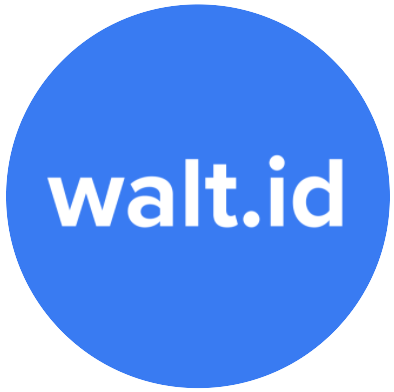Why use Non-Fungible-Tokens (NFTs) ?
An innovative way to digitally model ownership of any asset (physical, digital, IP) using blockchains.
Asset Sources
Businesses can digitize and tokenize any asset securely.
Asset Owners
Users can control and trade assets without dependence on 3rd parties.
Asset Verifiers
Businesses can verify asset ownership, authenticity and create ownership-based access.
What are NFTs ?
A non-fungible token represents ownership of something and typically has three important properties:
-
Each NFT is unique or one of a kind. There is no other thing just like it.
A fungible token, on the other hand, is not unique. It would not make any difference if a fungible token would be exchanged for another token of the same kind such as a Bitcoin.
-
NFT represent ownership or property rights. They are treated as the actual thing that they stand for (i.e. tokenize).
As a result, by selling an NFT, one is also selling “the real thing” that it represents
-
NFTs can be used to tokenize and represent anything from physical things (like a house) to natively digital assets (e.g. crypto punk) or even ideas (IPR).
In this short video Fatima explains the basics of NFTs.
How it works.
Ownership is transformed into NFTs that can be transferred, managed and verified easily.
Example: A luxury brand (Issuer) issues a digital certificate of authentication for a product (NFT) to a customer (Holder = owner), which he later presents to an event organiser (Verifier) in order to attend.
Which industries can use NFTs ?
Creator economy
Digital art can be scarce thanks to NFT. The creator economy also includes “digital twin” of physical products used by brands to issue authenticity certificates.
Entertainment
NFTs can be used for ticketing. Being on blockchains, it allows better traceability and verifiability of those tickets and can provide a unique user experience in general which is important in entertainment.
Travel and Tourism
NFTs can also represent airplane or public transport tickets; as well as membership cards. Loyalty program, exclusive content and vouchers are 3 practical use cases for NFTs in that industry.
Supply Chain
Thanks to its traceability characteristic, NFT are perfectly designed for Supply Chain usage. Product tracking and product authenticity is made easy when physical products are associated with NFTs.
Music and IP rights
Much like digital art, artists can link their music to NFTs which makes it possible for fans to own a piece of a song or album and receive royalties for it. It is also possible for IP rights in general
Gaming
Items in online games can now be truly owned by the players, which offers the possibility to sell and buy them outside of a game’s marketplace, but also using items in other other games or platforms.
Ticketing
The ticketing industry is already being disrupted by Non-Fungible-Tokens. Thanks to its digital, traceable, immutable and customisable traits, NFT tickets have clear benefits over standard tickets.
Sport
NFTs are now starting to be used around different sports like football and basketball. The main use cases at the moment are collectibles and tickets but we will soon see more.
Finance & DeFi
NFTs can be used as collateral to borrow money on DeFi protocols. Charities have already started to raise money by selling their own NFT collection and crowdfunding platforms are now challenged P2P
Loyalty programs
Companies & brands are constantly engaging with their customers through established loyalty programs. Blockchain and especially NFTs can improve those interactions creating new reward systems.
Benefits of using NFTs
Increased revenue and customer experience combined with lower costs and risks.
Increase revenue
Selling NFTs can generate an additional revenue (mainly on secondary markets as the original issuer can claim a fee on each sale)
Unique experience
NFTs enable unique experiences and allow brands to create better and more exciting relationships with your customers
Lower costs
NFTs take out middlemen that traditionally take cuts of transactions. Thus, NFTs dramatically reduce transaction costs for selling & trading assets
Competition
On top of showing clients that you are innovating. Consider the impact on your business if competitors adopt nft before you
Fraud prevention
NFTs can be verified and tracked. They enable the tokenization of assets in a way that makes them hard (or even impossible) to counterfeit and easy to verify
Visibility
NFTs can offer brands more visibility, but it also offer great visibility on the digital assets sold by a company
Discover more use cases & find out who is using NFTs
Want to dive deeper?
Digital Twins
Co-authored by BCG, to learn how NFTs change the world
NFTs for identity
White paper on the role of NFT for the future of digital identity.
Playbook
Step-by-step guide to building NFT solutions.
Get started.
Learn more about our open source NFT infrastructure solutions for developers and enterprises.





